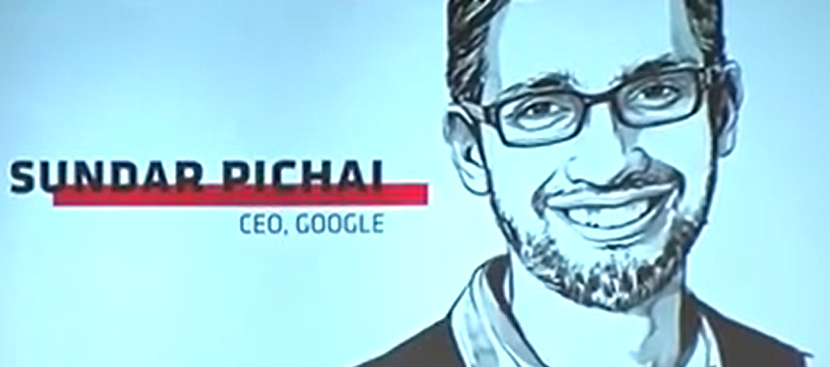
Whenever Google CEO Sundar Pichai takes to a stage there’s the hope that we might get a little insight into what is happening within the walls of elGoogle. One such event happened overnight when Sundar Pichai sat down for a chat with Walt Mossberg at Vox Media’s Code Conference.
The pair of tech luminaries spoke for about half an hour on topics ranging from voice, AI, video, search and the future of computing, you know the small issues. There will be a lot read into what Google’s CEO said, a lot extrapolated and inferred. We took the time to watch it once or twice and wanted to present what we think were the big reveals for consumers now and into the nearish future.
Hardware: Will there be a Google made Android phone?
Assuming Sundar didn’t just pull off the best piece of corporate double speak in history the short answer is, no.
If you were hoping for a 2016 Pixel Phone from the big G – as many of us may have been dreaming about – abandon all ye hope now. Don’t lose heart however, Sundar went on to say that they Google is actually “investing more effort” into the Nexus program. He even hinted at several exciting possibilities.
If Sundar is to be believed, and let’s face it he should know, Google will be having a much stronger input into all facets of the Nexus hardware process, including the design of the devices. Additionally, he hinted that Google would evolve the Nexus software beyond stock.
What could that mean? Google would create custom software experiences only available on Nexus phones. When you think about it this already happens to some degree with things like the dialler and contacts. What else could Google give some unique attention to that only Nexus owners can access?
As far as phone hardware goes Google remains committed to both the Nexus program and to working with their partners. But phones are only part of Google’s current and future hardware efforts. Sundar did say that Google would continue to work on hardware beyond the phone when they felt they needed to “push specific markets”.
This leaves a lot of room for; Google Home devices, tablets, Chromebooks, Chromecasts, Android TV devices and basically, anything other hardware categories that Google feels needs a more guided hand. It also suggests that Google could transition to a “Nexus” style partnership model with any of these hardware offerings as well.
We’re expecting a big hardware event sometime this September so Google’s next steps in the hardware space should become apparent then.
The Future of Computing
Are screens dead? No says Sundar. In what can only be described as a tantalising answer, Sundar spoke not about the screen, not about devices but about the presence of computing in our lives. Yesterday computing was done on a PC and then a laptop. Today computing is done on those same devices PLUS on the phone, tablet, and even wearables.
Where does Sundar see the future of computing? I’d wager many places, but he discussed a future where computing becomes something ambient, contextual and always working for you. In this description, Computing transcends the device the screen and even the physical, and becomes an ephemeral presence that you interact with in many ways, voice, touch, devices, screens AR, VR the list continues. And of course, I bet Sundar sees Google in the center of that ephemeral ecosystem.
Voice, assistance and search
Why doesn’t Google’s current or future voice services have a cutesie name? Where is Google’s Siri, Cortana or M? Well according to Sundar Google isn’t building one, it’s building one for every each of us. In what could be seen as a little bit of hype, Sundar explained that Google’s goal is to create an individualised Google for each and every one of us.
What Sundar seemed to be alluding to is that through their machine learning and depth of knowledge about us Google’s platform, be it accessed through traditional search, chat or their assistant and whatever comes next will be able to act and react to us differently based on what Google knows about us and our context.
Sundar admitted they are on a 5 to 10-year journey to fully realise even their current plans for the convergence of computing, search and machine learning. I for one can not wait to see where we will be, and where we will be headed when these visions are realised.
If you want to watch the whole chat yourself, check it out below.
What stood out the most for you from this? Let us know below.




